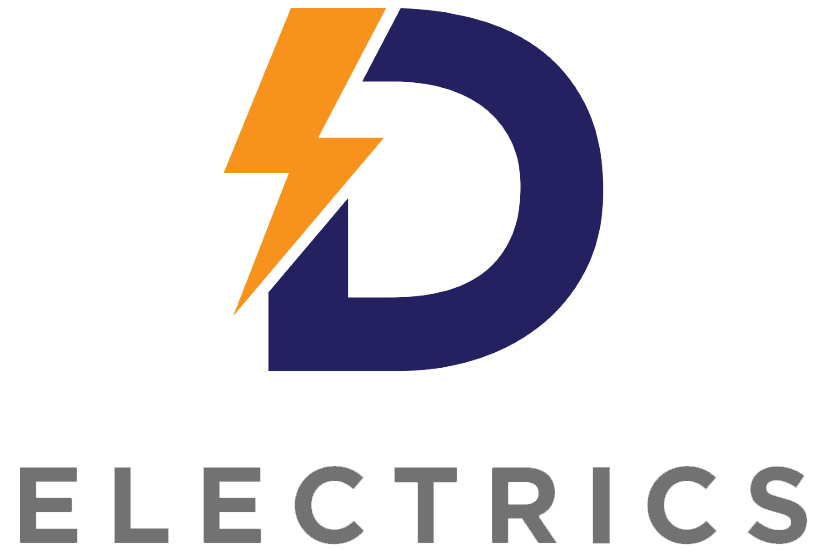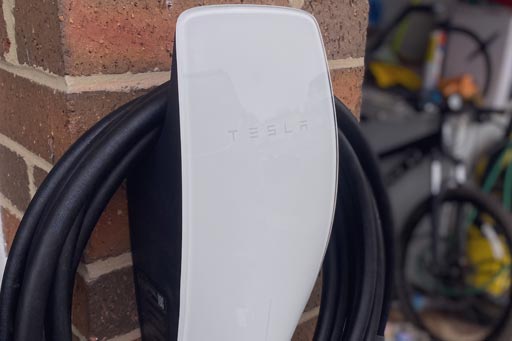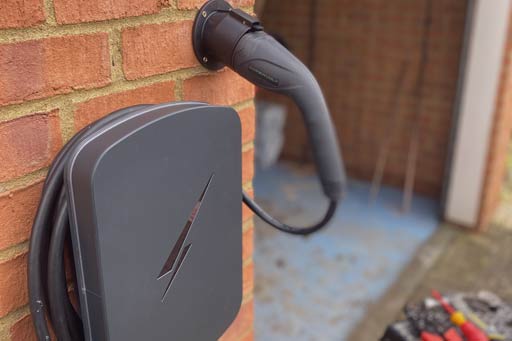
D Electrics offer a comprehensive EV charger installation service that is designed to meet the needs of both homes and businesses. We are Qualified Electricians approved by most of the market leading Electric Vehicle Charger manufacturers.


We can install chargers that are compatible with both AC and DC power sources. So, regardless of your EV charging needs, we can help you find the perfect solution.
All of our EV charger installations are carried out by qualified electricians approved by leading Electric Vehicle Charger manufacturers.
Northamptonshire based, D Electrics has a proven track record and have been installing Electrical Vehicle Chargers, in and around the county for over seven years. We provide Ev charger installation for both homes and businesses. These range from fast chargers, that can provide a full charge in just minutes, to slow chargers that are perfect for overnight charging.
All of our work carries a full warranty ensuring that your EV Charger is installed safely, efficiently and is in compliance ith all the current regulation.
Safety is our first priority. We make sure all our EV Charger installations comply with the recent regulations, including the IET Code of Practise and BS7671.
Every Electric Vehicle Charger requires an RCD protection, proper cable sizing and a Surge Protection Device (SPD). We strictly comply with and adhere to all codes and practises.
We offer EV Chargers, from Single Phase (7KW) to 3 Phase (22KW) Chargers. From Domestic Residential Properties to Commercial Businesses. We cater for all sections of the Industry.
Installing an EVcharger at home is convenient. You can charge your Electric Vehicle at any time, day or over night thus ensuring you start your journey with a full battery. It is also cost saving. Get the benefit from 'Off Peak' lower electricity rates. Electric vehicle charging at home is environmentaly friendly and reduces your carbon footprint.
Our Service includes a detailed site assessment prior the installation. We carry out an in-depth site inspection when we visit your home in order to find the best location for your EV Charger. This involves evaluating your existing Electrical System. D Electrics will inform you whether the EV charger can be installed by feeding it from your existing Consumer unit or if it requires the installation of a small EV Consumer unit to safely supply power to your EV Charger.
Since every Installation is different because of factors such as location, wall material, existing cables and pipe and power source. We explain in detail to our customers, just how their Electric Vehicle Charger Installation would look. We then take them through the install process, step by step.
Here we try to answer some of the most common questions we get asked about EV vehicle charging.
A: Since Since every Installation is different, it's best to get in touch with us to arrange a site visit and determine what’s the best method of installing the EV Charger.
A: This is probably the most common question we have regarding EV Charger Installations. The answer in the majority of the cases is NO! Electric Vehicles needs a dedicated Power Supply. These are 7KW (32A) units, they need them own supply with a minimum of 4 - 6 sq mm cable(depending on the length of cable run). The Garage supply is usually a 20A Supply fed via a 2.5sq mm cable. Also, you still need to have a data cable (CAT5 ) installed from the EV Charger to the Electric Meter Cabinet in order to wire up the CT Clamp to be able to monitor the Main House demand.
A: Its an Electrical Installation so with common sense one would think yes. However, EV Charger installers like D Electrics have to take and pass a specialist course for EV Charger Installations. There are strict regulation governing what we can do and we can’t do. In addition, the person carrying out the installation needs to be an approved Installer of the manufacturer in order to able to commission the EV Charger and not make void the Warranty. Its best to consult with an EV Charger expert to safely and correctly install your EV Charger.
A: Installing an EV Charger might seem simple, just mount it to the wall and feed power into it, however in reality its a lotmore complex. There are strict regulation for EV Charger Installations such as making sure all the protections are in place. These include Type A RCD, a 'Surge Protection' device, and CT clamps.
A: If your Consumer Unit is up to date, has a Surge Protection Device, Type A RCD, and has a spare space to Install a new Circuit into, then yes you can. If not there is still a way. In 99% of cases we either need to install a small EV Enclosure next to your Electric Meter Cabinet with a Surge Protection Device and RCD in order to feed power to your EV Charger. Alternately, we can upgrade the Main Consumer Unit (Fusebox) to bring it up to the current regulation.
A: A 'Surge Protection Device' protects your Electric Vehicle in the event of a high electrical power surge. An RCD or in other words Residual Current Device is for Additional Protection. It is mandatory part of an EV Charger Installation as its monitors leakage to earth. Since Electric Vehicles produce DC, the minimum 30mA Type A RCD is necessary.
Established in 2017, D Electrics has been providing electrical services around Northamptonshire and the East Midlands. Visit our ‘about us’ page for more information.